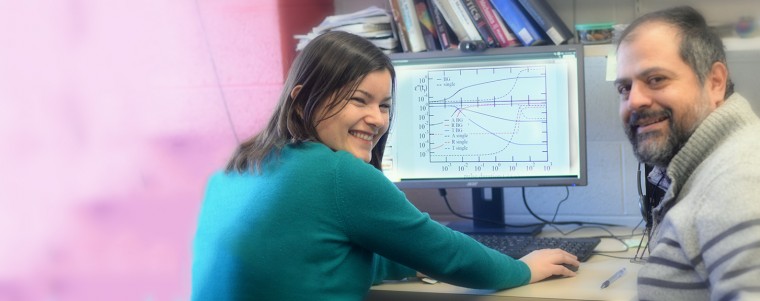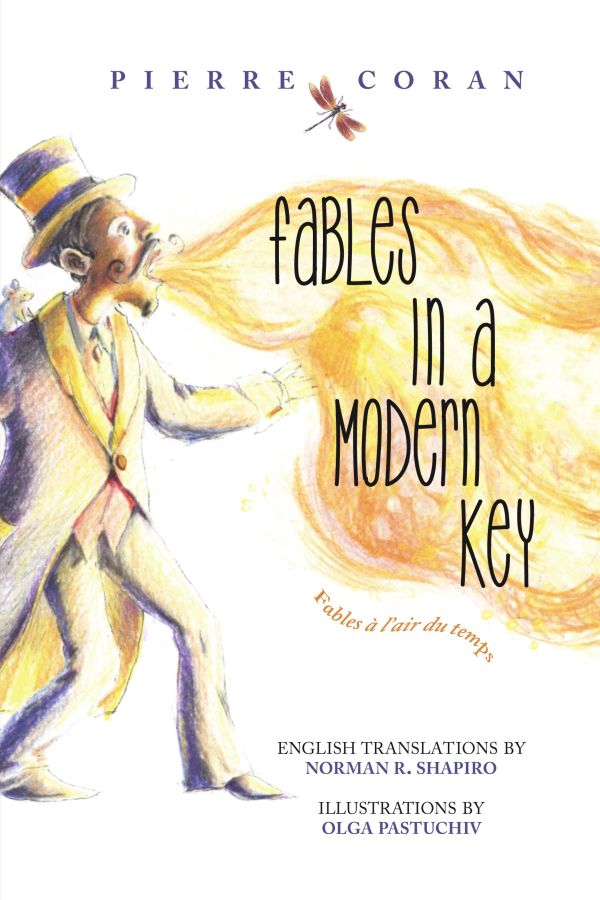#THISISWHY For many years, pilots in the Air Force, scientists conducting research with high-powered lasers, and others have struggled to protect their eyes and sensitive equipment from being damaged by intense laser pulses. In many cases, this was achieved by intense power filters, which offered protection, but self-destructed. Now they have a solution, which provides protection without damaging the filters themselves, thanks to a research collaboration between the Air Force Research Laboratory (AFRL) and a team of researchers in Wesleyan's Physics Department. The research, led by Tsampikos Kottos, the Douglas J. and Midge Bowen Bennet Associate Professor of Physics, is included…
Total enrollment in Wesleyan’s massive open online courses (MOOCs) recently surpassed 1 million students, as Wesleyan professors prepare to offer a new run of two film courses through Coursera in the coming months. According to Jennifer Curran, director of continuing studies and Graduate Liberal Studies, enrollment is poised to continue growing in the lead-up to The Language of Hollywood: Storytelling, Sound, and Color, taught by Scott Higgins, associate professor and chair of film studies, beginning Feb. 2, and Marriage and the Movies: A History, taught by Jeanine Basinger, the Corwin-Fuller Professor of Film Studies, curator of the Cinema Archives, beginning…
Lutz Huwel, professor of physics, and Thomas Morgan, the Foss Professor of Physics, are the co-authors of an article titled "Investigating the dynamics of laser induced sparks in atmospheric helium using Rayleigh and Thomson scattering," published in the Journal of Applied Physics, Volume 117 in January 2015. The paper describes the use of two laser systems to prepare and study a helium plasma, and draws on an extensive international collaboration. The electron density and temperature of the plasma are measure as a function of time and space with high precision. The work has important impact in the area of laser induced…
Norman Shapiro, professor of French, is the translator of Fables in a Modern Key (Fables dan l'air du Temps), published by Black Widow Press in 2015. Fables was written by by Pierre Coran (whose real name is Eugene Delaisse), a poet and novelist of the Belgian French-language. One of Begium's most renowned poets with some 45 poetry books published to date, he also is the author of 25 published novels, 24 books of fables, hundreds of comic book stories, and several albums which have been translated into more than a dozen languages. His children's stories and fables are published around…
Ron Jenkins ’64, professor of theater, published a review of Lempad of Bali: The Illuminating Line in the Jan. 19 edition of the Jakarta Post. Jenkins had high praise for the book, which contains pictures of the works of Balinese architect and artist I Gusti Nyoman Lempad. Jenkins wrote, "the aptly titled volume illuminates not only the exquisite lines of Lempad’s artwork, but also the intangible elements of Balinese identity that those lines represent." In addition to describing some of the noted works, Jenkins also commended the depth and insightfulness of the essays that accompanied each work. The essays were written by a team of…
Lauren Caldwell, assistant professor of classical studies, is the author of a new book titled Roman Girlhood and the Fashioning of Femininity, published by Cambridge University Press in December 2014. Elite women in the Roman world were often educated, socially prominent, and even relatively independent. Yet the social regime that ushered these same women into marriage and childbearing at an early age was remarkably restrictive. In the first book-length study of girlhood in the early Roman Empire, Caldwell investigates the reasons for this paradox. Through an examination of literary, legal, medical and epigraphic sources, she identifies the social pressures that tended…
An article by Victoria Smolkin-Rothrock received honorable mention for the Distinguished Article Prize from the Association for the Study of Eastern Christian History and Culture. Smolkin-Rothrock is assistant professor of history, assistant professor of Russian, Eastern European and Eurasian studies and tutor in the College of Social Studies. Her article, titled "The Ticket to the Soviet Soul: Science, Religion and the Spiritual Crisis of Late Soviet Atheism," appeared in Volume 73, Issue 2 of The Russian Review and was selected from among 22 entries. The honor comes with a $200 award. Smolkin-Rothrock's article examines the confrontation of Soviet scientific atheism with religion as it played out on the pages and…
A chapter titled "Research Domain Criteria (RDoC)" by Charles Sanislow, associate professor of psychology, associate professor of neuroscience and behavior, was published in the Encyclopedia of Clinical Psychology in January. Kevin Quinn of the National Institute of Mental Health (NIMH) and Isaiah Sypher ’13 co-authored the chapter. Sypher worked in Sanislow’s lab at Wesleyan and then went on to a research position at the NIMH Intramural Program in Affective Neuroscience. He is currently in the process of applying to clinical science programs in psychology. Sanislow and Quinn are both charter members of the NIMH Working Group for the RDoC, a project that is developing…
A book by Marc Eisner, the Henry Merritt Wriston Chair of Public Policy, was selected as a winner of the Outstanding Academic Titles by Choice in 2014. Eisner's book, The American Political Economy was published in 2014. In this innovative text, he portrays the state and the market as inextricably linked, exploring the variety of institutions subsumed by the market and the role that the state plays in creating the institutional foundations of economic activity. Through a historical approach, Eisner situates the study of American political economy within a larger evolutionary-institutional framework that integrates perspectives in American political development and economic sociology. Eisner also is chair…
Professor of Economics Richard Grossman recently accepted two new posts. He was appointed to be a research fellow in the Economic History Program of the London-based Centre for Economic Policy Research (CEPR). Founded in 1983, CEPR's mission is "to enhance the quality of economic policymaking within Europe and beyond, by fostering high quality, policy-relevant economic research, and disseminating it widely to decision-makers in the public and private sectors." Grossman is one of only a few American research fellows at CEPR. He was also recently appointed associate editor for socioeconomics, health policy and law of the journal Neurosurgery. See here for a bio of…
Martha Gilmore, the George I. Seney Professor of Geology, and her former graduate student Patrick Harner MA ’13 are the co-authors of a paper titled "Visible–near infrared spectra of hydrous carbonates, with implications for the detection of carbonates in hyperspectral data of Mars," published in Icarus, Vol. 250, pages 204-214, April 2015. The paper suggests that hydrous carbonate minerals might be relevant on Mars. "We bought and made these unusual minerals in my lab and then took spectra of them to simulate what Mars orbiters might see. Carbonate minerals form in water on Earth (e.g., limestones), and are predicted for Mars, but…
Professor of Economics Richard Grossman spoke to China Daily about gold price fluctuations in connection with the Chinese New Year and other annual celebrations. Many in the Chinese community purchase gold jewelry and other gifts to help celebrate the holiday. "There does seem to be a seasonal element to consumer demand for gold in several countries. In China, demand increases in months leading up to the New Year. In India, it is said to increase during the holiday/wedding season, which runs from the end of September through January," said Grossman. But, he added, inflation, currency movements, and economic and political stability are "far…



